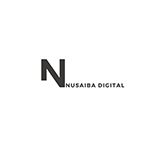E-mail marketing expert

I am an e-mail marketing expert, I will excel in crafting essential, targeted email campaigns designed to capture the audiences, drive conversions, and maximize ROI.
Our expertise lies in taking advantage of data analytics, division strategies, and creative content to deliver an important message that exist with subscribers. With a sincere understanding of industry best practices and arise trends, you consistently achieve impressive open rates and customer control metrics for our clients or organization. E-mail marketing is a form of marketing that can make the customer on our email list aware of new products, discounts, and other services. E-mail marketing expert requires a combination of marketing strategy, creativity, analytical skills, and technical knowledge.
Responsibilities, Skills, and Qualifications of an Email Marketing Expert:
Responsibilities
-
Campaign Strategy and Planning:
- Develop comprehensive email marketing strategies with business goals and target audience.
- Conduct market research to understand audience priority and behavior.
- Section email lists based on demographics, behaviors, and preferences to ensure targeted messaging.
-
Content Creation and Design:
- Create compelling and attractive email content, including subject lines, body text, and calls to action (CTAs).
- Collaborate with designers to produce visually appealing email templates that reflect the brand’s identity.
- Ensure all content adheres to brand guidelines and is optimized for deliverability and engagement.
-
Campaign Execution:
- Set up and deploy email campaigns using email marketing platforms (e.g., Mailchimp, HubSpot, Constant Contact).
- Schedule emails to be sent at optimal times to maximize open and click-through rates.
- Implement A/B testing to determine the most effective content, design, and timing.
-
Analytics and Optimization:
- Monitor and analyze key performance metrics (open rates, click-through rates, conversion rates, bounce rates).
- Use data insights to optimize email campaigns for better performance.
- Conduct regular audits of email lists to maintain high deliverability rates and reduce spam complaints.
-
Compliance and Best Practices:
- Ensure all email campaigns comply with relevant regulations (e.g., GDPR, CAN-SPAM Act).
- Stay updated with industry best practices and emerging trends in email marketing.
- Implement strategies to grow and maintain a healthy email subscriber list.
Skills
-
Marketing Knowledge:
- Strong understanding of marketing principles and digital marketing channels.
- Ability to develop and execute strategic marketing plans.
-
Copywriting and Content Creation:
- Excellent writing and editing skills to create persuasive and engaging content.
- Ability to tailor messages to different audience segments.
-
Analytical Skills:
- Proficiency in using analytics tools to interpret data and generate insights.
- Ability to make data-driven decisions to improve campaign performance.
-
Technical Proficiency:
- Experience with email marketing software and CRM systems.
- Basic knowledge of HTML and email design best practices
Qualifications
- Education:
- A bachelor’s degree in marketing, communications, business, or a related field is often preferred.
- Experience:
- Proven experience in email marketing, digital marketing, or a related field.
- Portfolio of successful email campaigns and measurable results.
- Certifications:
- Certifications in email marketing or digital marketing (e.g., HubSpot Email Marketing Certification) can be advantageous.
Email marketing expert should continually seek professional development opportunities to stay ahead of industry trends and technological advancements. This can include attending marketing conferences, participating in webinars, and obtaining additional certifications.
Benefits of Email Marketing
1. Cost-Effectiveness
- Low Cost: Compared to traditional marketing channels, email marketing is highly cost-effective. There are no printing or postage costs, and the expenses related to advertising space on television or billboards are avoided.
- High ROI: Email marketing consistently offers one of the highest returns on investment (ROI) among digital marketing strategies.
2. Targeted Messaging
- Segmentation: Allows for precise targeting by segmenting the email list based on various criteria such as demographics, purchase history, and user behavior.
- Personalization: Enables personalized communication, enhancing engagement by tailoring content to individual preferences and needs.
3. Measurable Results
- Analytics: Provides detailed metrics such as open rates, click-through rates, conversion rates, and bounce rates, enabling marketers to measure the effectiveness of their campaigns.
- A/B Testing: Facilitates testing different versions of emails to see which performs better, allowing for continuous improvement.
4.Automation
- Efficiency: Automates repetitive tasks like sending welcome emails, follow-ups, and drip campaigns, saving time and ensuring consistent communication.
- Timely Communication: Ensures that emails are sent at the optimal time for engagement, such as sending cart abandonment emails shortly after a user leaves items in their cart.
5. Enhanced Customer Relationships
- Direct Communication: Provides a direct line of communication with customers, fostering a sense of connection and trust.
- Engagement: Regular, relevant content keeps your audience engaged and informed about your brand, products, and services.
6. Customization and Flexibility
- Content Variety: Supports various types of content, including newsletters, promotional offers, event invitations, and product announcements.
- Design Flexibility: Allows for creative designs and formats to make emails visually appealing and aligned with brand identity.
7. Scalability
- Large Audiences: Easily reaches large audiences without significant additional costs, making it scalable as your business grows.
- Adaptability: Can be adapted for small, medium, or large businesses, offering a flexible approach to marketing.
8. Increased Traffic and Sales
- Traffic Generation: Drives traffic to your website by including links to blog posts, product pages, and other web content.
- Sales Boost: Promotes products and services directly, leading to increased sales and revenue.
9. Customer Feedback
- Surveys and Feedback: Easily integrates surveys and feedback forms to gather customer opinions and insights, which can inform business strategies and improvements.
10. Integration with Other Marketing Channels
- Cross-Promotion: Integrates seamlessly with other marketing channels like social media, content marketing, and online advertising, creating a cohesive marketing strategy.
- Consistent Messaging: Ensures that messaging across different channels is consistent, reinforcing the brand’s identity and message.
